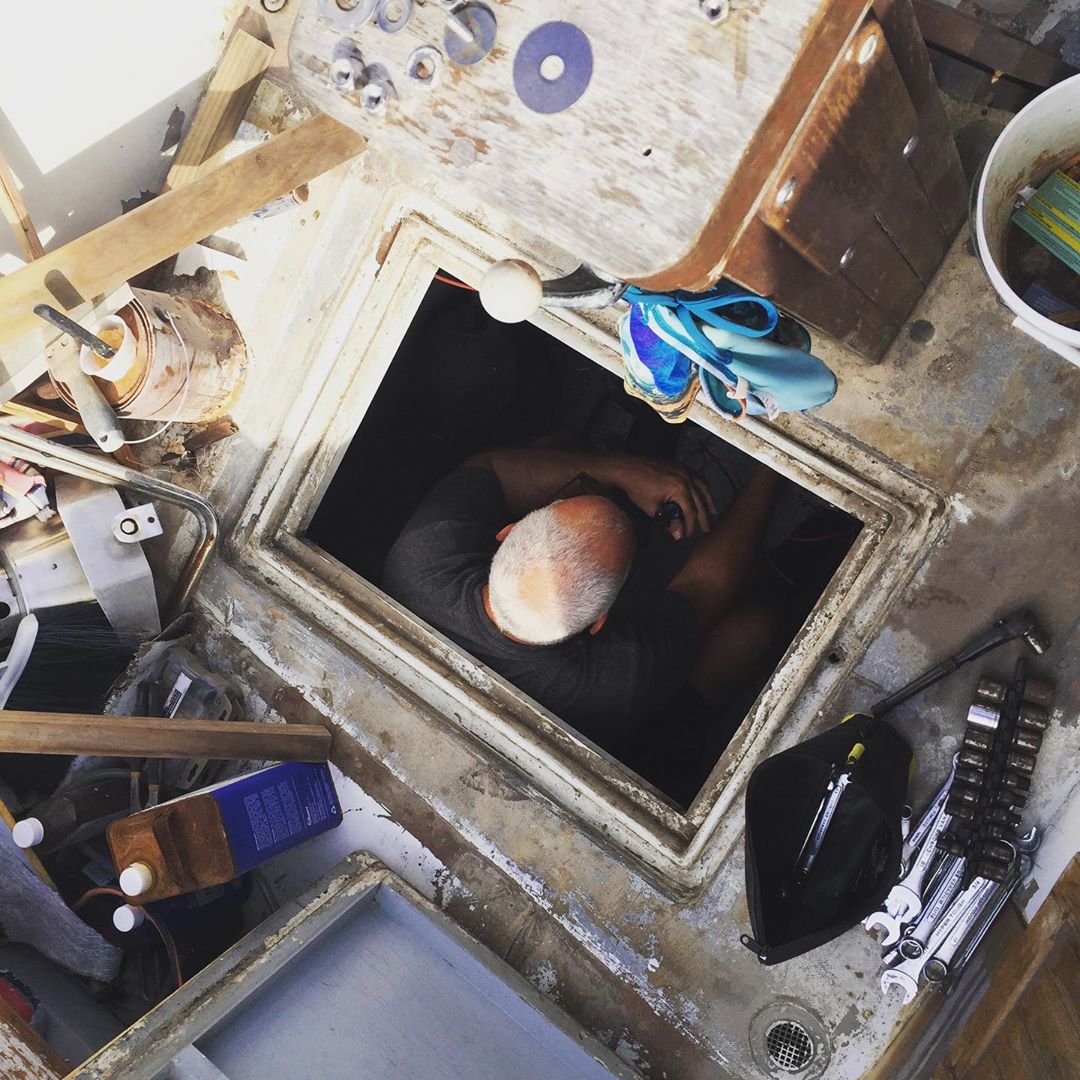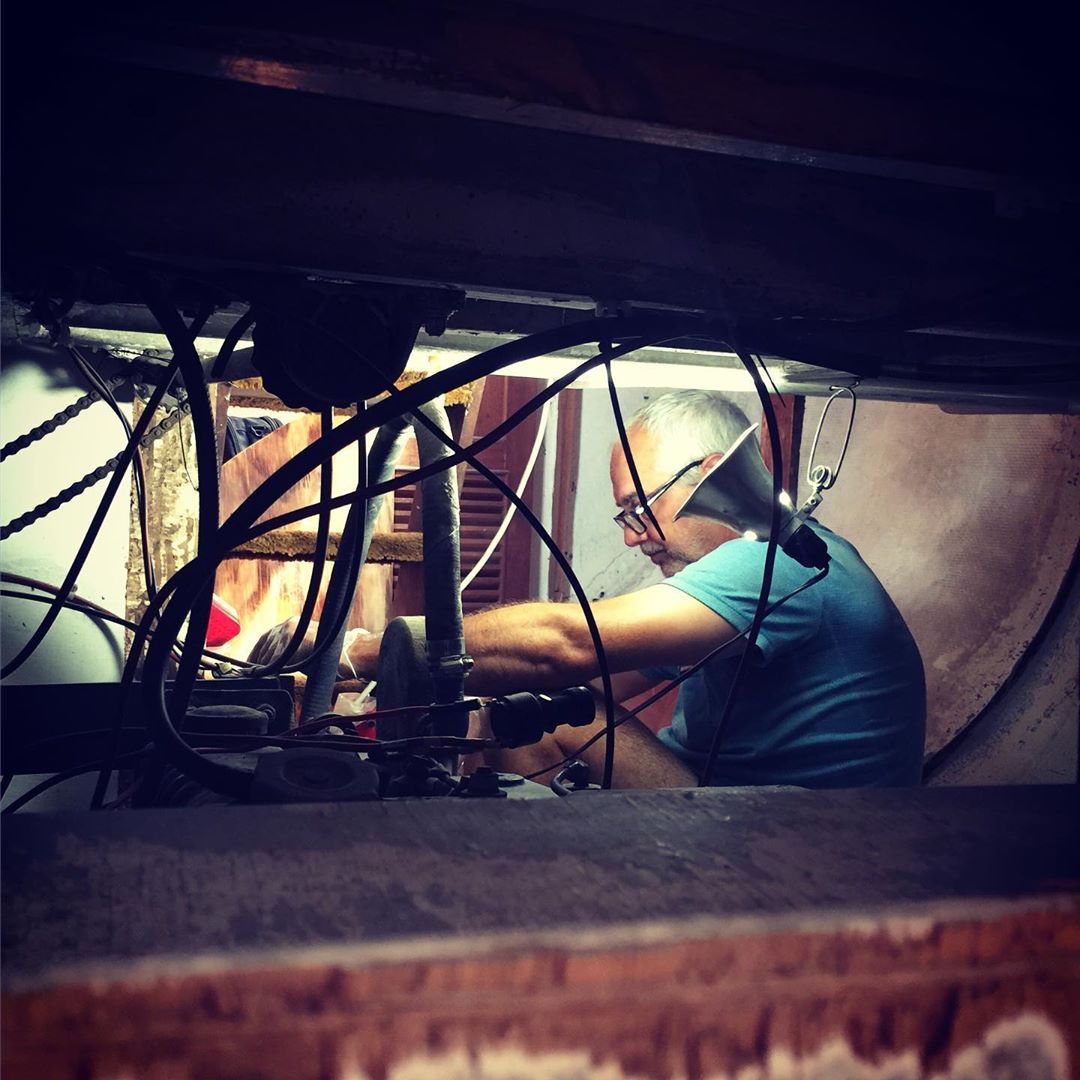The government hasn’t significantly reinvested in American infrastructure in several decades. Maintenance of the existing infrastructure has been underfunded and at times seems more cosmetic than anything a la the old painting rule in the Navy:
Once over dust; twice over rust.
New Orleans, Louisiana, USA can give us some insights as to the effects of that neglect. January 2018 is especially telling. In the space of a couple of weeks, electricity has been out across much of the city, a boil water advisory has been issued, some roads were flooded (water main breaks) and then promptly froze, schools were closed, etc, etc, etc. Fact is, the city was unable to provide for the infrastructure it’s population required.
Meanwhile, those living on boats were relatively unaffected by these issues.
When you’re a “liveaboard,” you treat your boat like a house. There are certain things that need to be done for this to work: Comfy beds (bunks), a workable kitchen (galley), a nice bathroom (head) to name just a few. But you also treat your house like a city: you have complete control over (and responsibility for) electricity, water, and other resources that are handled (if you’re lucky) by the city for land-lubbers.
What if we turned that around and decided to treat a house like a boat? What kind of accommodations would need to be made for that to work?
Electricity
If you ever wanted to know precisely how fragile modern society is, turn off the electricity for a few hours. Things break down remarkably fast. In cold weather, people are miserable while in very warm weather people are equally uncomfortable. Cooking becomes difficult if not impossible. Communication devices die and can’t be recharged.
In more extreme situations (Hurricane Katrina, New Orleans, 2005; Hurricane Maria, Puerto Rico, 2017), power outages can impact cell phone towers, water purification systems, and even medical facilities.
So what can you do?
Solar and wind power on your property could eliminate the impact of city power outages, and while whole house solar is ideal, even smaller solar panels to charge cell phones and emergency radios would at least help.
Generators (which can be wired directly to the main house panel but don’t have to be) are another alternative. This would provide a couple of outlets to keep the refrigerator, and heating and air conditioning on. You can’t do anything if the power outage is too extreme, but you can keep yourself sane while the city infrastructure is repaired.
Water
As of June 2016, CNN reported “5,300 US water systems are in violation of lead rules,” and it doesn’t seem that the situation has improved since then. But lead isn’t the only concern.
New Orleans’ current boil water advisory is a biological risk, and it’s not restricted to cold weather. Anecdotally, this happens half a dozen or more times a year in Orleans Parish. Nationwide, I imagine it’s much less common, but still a problem when it does occur.
Building a water tower in your backyard, although an epic idea and I’d encourage everyone to do it, may not be practical but a good filtration system is. You could invest in multi-filter systems that are permanently installed and need little routine maintenance. Even if there were no known problems, the peace of mind of knowing your water is clean seems like it would be worth a modest investment.
Then, there’s rain barrels for watering lawns which is very easy and takes the load off the municipal system. Not to mention ‘grey water systems’ for the more advanced hippies in the group.
Food
Most American kitchens have food that needs preparation, and that’s great most all the time. But it does make sense to have some things like canned tuna (or canned just about anything), dried milk, dried fruit, etc. which doesn’t go bad and will be there for you in a pinch. Also, if you’ve taken care of electricity and water, you could prepare things like rice, dried beans and other staples that basically never go bad – again, it’s there when you need it. And remember, hard liquor never goes bad – just sayin’.
My adorable wife is starting to offer some suggestions for cooking under our more Oregon Trails-esque conditions. You can follow her “kinda recipes” here.
Books and Games
I’m a huge fan of reading books on my ipad, but I have to admit there’s something nice about an actual book. Repeated hurricanes and flooding have somewhat decimated many personal book collections (my own included) here in New Orleans. But the XO has insisted that books be on board to improve and maintain quality of life, and she’s right. Read to your kids! Read to each other! There’s something really comforting about it.
Card games and board games are also popular among liveaboards and get traded around. Take this idea in your own direction, the point is to have some analog entertainment around. Something that doesn’t require electricity. Something that can be played together as a family or group. Sitting around a board game is very different than playing Minecraft together online. And if you don’t care for board games, well, that’s why you have hard liquor around.
Conclusion, sort of
I’m not suggesting go full ‘prepper.’ That’s easily discounted as irrational. But there are rational things that can be done to preserve your quality of life and safety when municipal infrastructure fails.
Sure, it would be great if the country made several massive infrastructure investment in the next few years, but maybe that’s an old way of thinking. Maybe a better approach is for individuals to use commercially available technology to provide some of their own infrastructure. There are even some proposing small community infrastructure where a condo, or a city block pool resources to establish a more stable collective infrastructure (build that water tower!) to reap a small economy of scale from the investment.
Fact is, “trusting the government” any more than is absolutely necessary may not be as appealing as it once was. I, for one, like the idea of knowing when the filter has been changed and the solar panels cleaned. The government can then focus on roads, bridges, waterways, and parks where individuals have less autonomy.
This is in no way a complete list. Feel free to add any other suggestions in the comments.






Leave A Comment